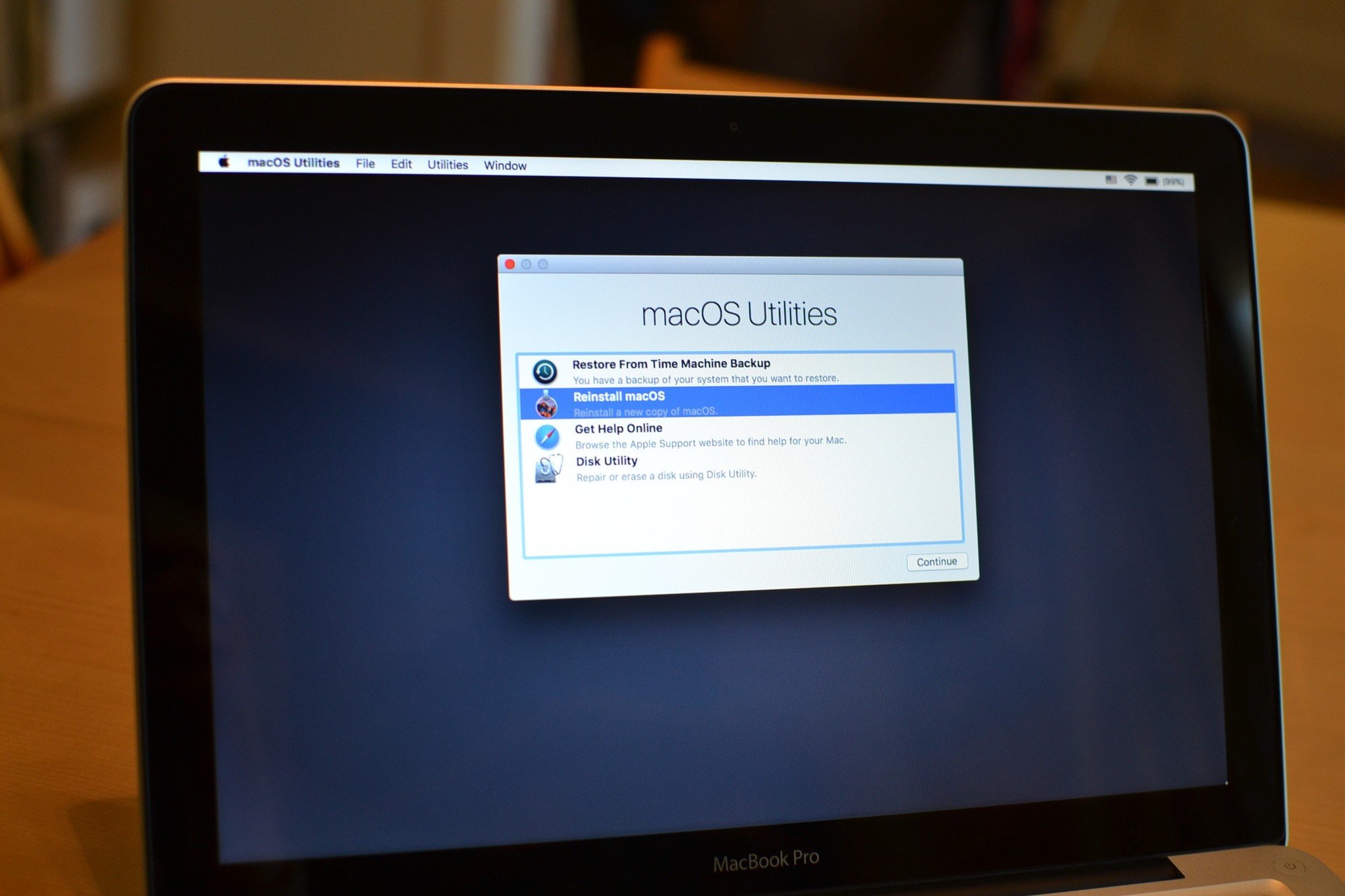But if you can't get access to another Mac or the necessary drive, it's still possible to use a different Recovery mode on all recent Macs, dating back to 2010. Reinstall or wipe. The newer APFS is best for solid-state drives, and Mac OS Extended (Journaled) is best for older, mechanical hard drives. Scheme: Choose GUID Partition Map. Next, click Erase and after Disk.
Be sure to check out if you need the firmware update from the above link.
Install or Reinstall OS X from Scratch
Be sure you have backed up your files because the following procedure will remove everything from the hard drive.
Boot to the Recovery HD:
Restart the computer and after the chime press and hold down the COMMAND and R keys until the menu screen appears.
Erase the hard drive:
1. Select Disk Utility from the main menu and click on the Continue button.
2. After DU loads select your startup volume (usually Macintosh HD) from the
left side list. Click on the Erase tab in the DU main window.
3. Set the format type to Mac OS Extended (Journaled.) Optionally, click on
the Security button and set the Zero Data option to one-pass. Click on
the Erase button and wait until the process has completed.
4. Quit DU and return to the main menu.
Reinstall OS X: Select Reinstall OS X and click on the Install button.
Note: You will need an active Internet connection. I suggest using Ethernet if possible
because it is three times faster than wireless.
This should install the version of OS X that you had installed.
If you need to start with Snow Leopard:
Clean Install of Snow Leopard
Be sure you have backed up your files because the following procedure will remove everything from the hard drive.
1. Boot the computer using the Snow Leopard Installer Disc or the Disc 1 that came
with your computer. Insert the disc into the optical drive and restart the computer.
After the chime press and hold down the 'C' key. Release the key when you see

a small spinning gear appear below the dark gray Apple logo.
2. After the installer loads select your language and click on the Continue
button. When the menu bar appears select Disk Utility from the Utilities menu.
After DU loads select the hard drive entry from the left side list (mfgr.'s ID and drive
size.) Click on the Partition tab in the DU main window. Set the number of
partitions to one (1) from the Partitions drop down menu, click on Options button
and select GUID, click on OK, then set the format type to MacOS Extended
How To Wipe A Hard Drive Clean
(Journaled, if supported), then click on the Apply button.
3. When the formatting has completed quit DU and return to the installer. Proceed
with the OS X installation and follow the directions included with the installer.
4. When the installation has completed your computer will Restart into the Setup
Assistant. After you finish Setup Assistant will complete the installation after which
you will be running a fresh install of OS X. You can now begin the update process
by opening Software Update and installing all recommended updates to bring your
installation current.
5. If you are planning to sell or give your computer away, then do the following:
After you reformat your hard drive and reinstall OS X, the computer restarts to a
Welcome screen and asks you to choose a country or region. If you want to leave
the Mac in an out-of-box state, don't continue with the setup of your system. Instead,
press Command-Q to shut down the Mac. When the new owner turns on the Mac,
the Setup Assistant will guide them through the setup process.
Wipe And Reinstall Mac Os
Download and install Mac OS X 10.6.8 Update Combo v1.1.
